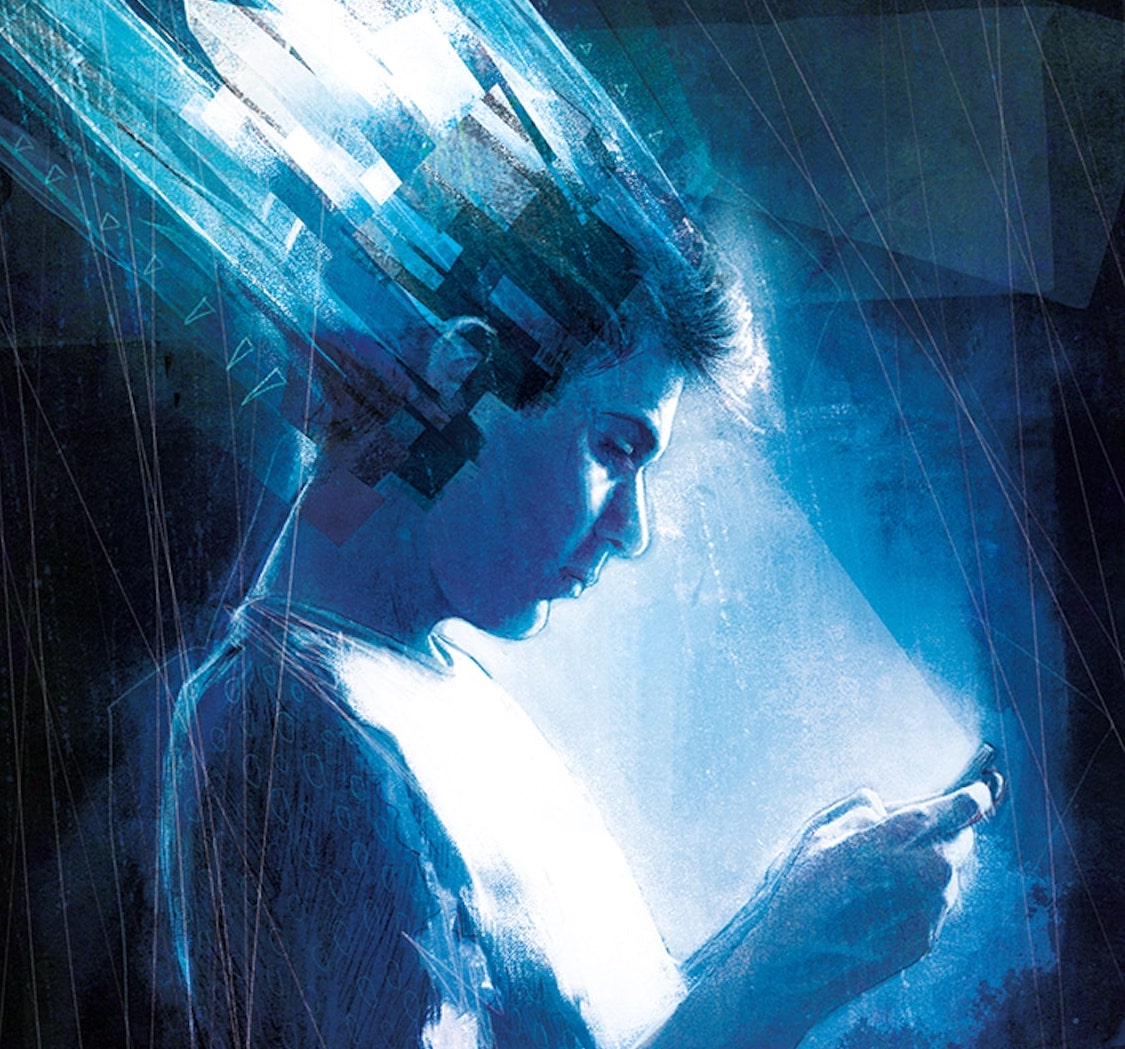The central concept of sci-fi thriller Mindset encapsulates our modern, smartphone-driven culture so well that I’m surprised that it hasn’t been done before (Or maybe it has and I just missed it). In a generation glued to our small screens, addicted to our social media accounts and obsessed with so-called “influencers” found on the internet, writer Zach Kaplan and artist John J. Pearson explore a simple question: “What if there was an app that could literally control minds?”
Of course, a great concept alone doesn’t make a great comic book. A story about a mind-control app could devolve into gratuitous displays of exploitation, tantalizing the reader with scenes of normal people being forced into horribly gruesome or scandalously embarrassing acts.
SPOILERS AHEAD for Mindset #1!
Luckily, Kaplan and Pearson steer far away from this kind of story in Mindset #1, out on June 29 from Vault Comics. Instead, they create a believable world, filled with relatable and realistic characters taking part in a compelling narrative. It’s a narrative that, at times, seems to take plot points directly from real-life events in the tech industry.
Even better, the most interesting part of Mindset is the creators’ use of this concept to explore deeper questions about our human nature and the effects of our present internet society.

That said, the story does start off with an act of gruesome violence. Our protagonist, Ben Sharp, is being interrogated for the murder of wealthy venture capitalist, Peter Winfield. But Ben claims that, although he did it, he wasn’t at fault, because his mind was being controlled. And he should know, since he’s the one who developed the mind-controlling technology. The rest of the issue is told in flashback, guided by Ben’s narration.
Looking at the art, John J. Pearson’s style is most obviously influenced by the likes of Bill Sienkiewicz. But, at no point do things get so abstract as to take away from the reading experience. Quite to the contrary, the art plays an integral role in telling the story, bringing emphasis to certain panels or adding layers of symbolism.
The art style also helps to keep the reader invested. This is important as the story isn’t exactly action-packed, instead driven by the intrigue of high-dollar tech industry and the college students trying to make it. The nontraditional art style makes everything more interesting and intriguing, as I already said, adding layers to the story.
Additionally, I have to praise the excellence of letterer Hassan Otsmane-Elhaou. This is a wordy comic, as Ben Sharp narrates everything with extensive commentary, often drifting into philosophical ponderings. There is a lot of exposition.
In keeping with the art style, the placement and style of the narration boxes and word balloons aren’t always as linear as in a traditional comic. But, at no time does the reader have trouble following the flow of the page. Everything is placed just right to guide the eyes through each panel and each page. In other words, it’s a wonderful example of the importance of good lettering.

In all this exposition, writer Zack Kaplan often explores the question at the heart of Mindset: “How many of our decisions are truly our own, completely free from outside influence?” The answer is, of course, obvious, when an app on your smartphone is literally controlling your mind. But Ben wonders how many other decisions are influenced by things like genetics, parents, friends and social structure. How many of our religious beliefs, scientific and political opinions are truly our own free choices and how many have been shaped by the environment we were raised in?
This question has become even muddier in the internet age. Although the internet promised us a wealth of information that would broaden our range of choices, in fact the opposite has often been true. We are more influenced by outside factors than ever before: social media, personally tailored ads, propaganda and so-called “influencers.” So, why not create an app that really does control your mind?
These are intriguing questions that will have you thinking for days or enliven the discussion of a comic book reading club.
From here the story builds to the fateful origin of the mind-controlling app. Now, the science in a sci-fi story like this has to sound plausible or it takes too much away from the central concept. Ridiculously bad science would take the reader completely out of the story. This isn’t a superhero comic, which doesn’t have to provide a realistic explanation for how a telepath can control minds. This is sci-fi based in reality. Fortunately (or maybe unfortunately), the science behind the mind-control technology in Mindset actually sounds frighteningly possible.
But, let’s hope the mind-controlling app at the center of Mindset remains the stuff of science fiction. At the very least, we can follow Ben Sharp, his friends and associates as they struggle with the consequences of their discovery in this realistically built world from Zack Kaplan and John J. Pearson. Pearson’s great art and Otsmane-Elhaou’s amazing lettering add layers of depth and intrigue to the thought-provoking examination of what outside factors influence our free-will. Issue #1 of Mindset definitely has me interested in seeing where this series goes in future issues.
Join the AIPT Patreon
Want to take our relationship to the next level? Become a patron today to gain access to exclusive perks, such as:
- ❌ Remove all ads on the website
- 💬 Join our Discord community, where we chat about the latest news and releases from everything we cover on AIPT
- 📗 Access to our monthly book club
- 📦 Get a physical trade paperback shipped to you every month
- 💥 And more!















You must be logged in to post a comment.